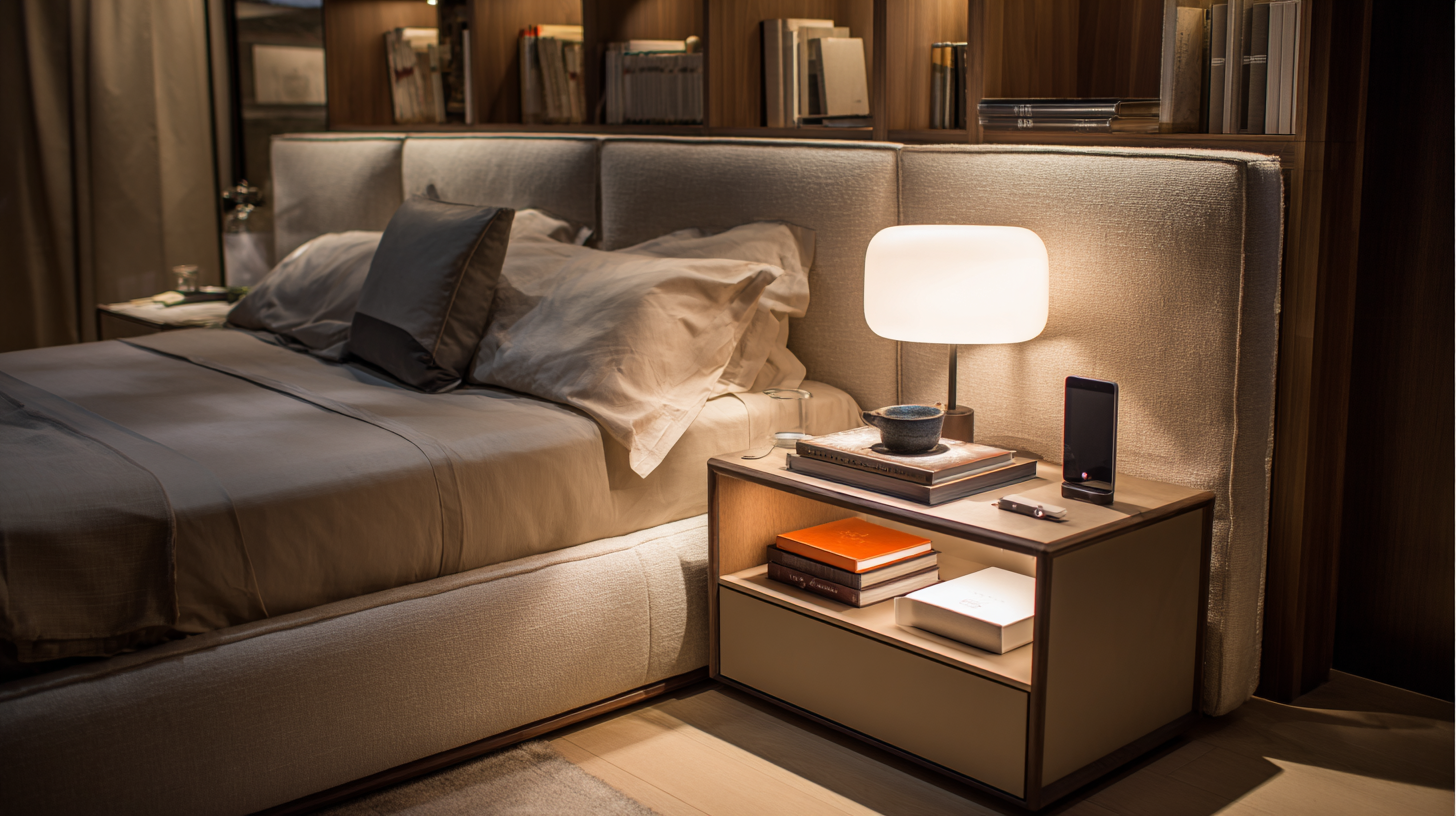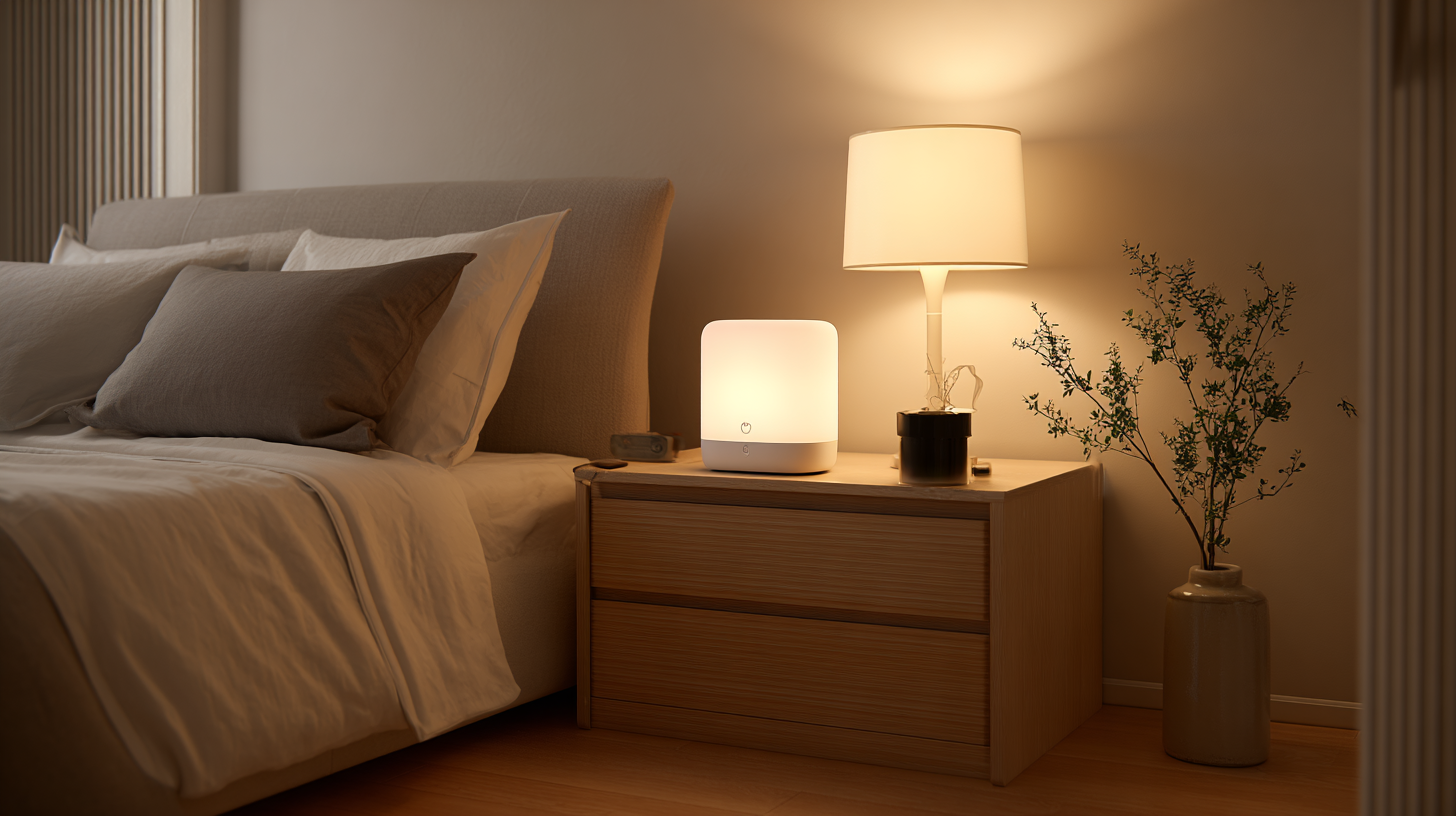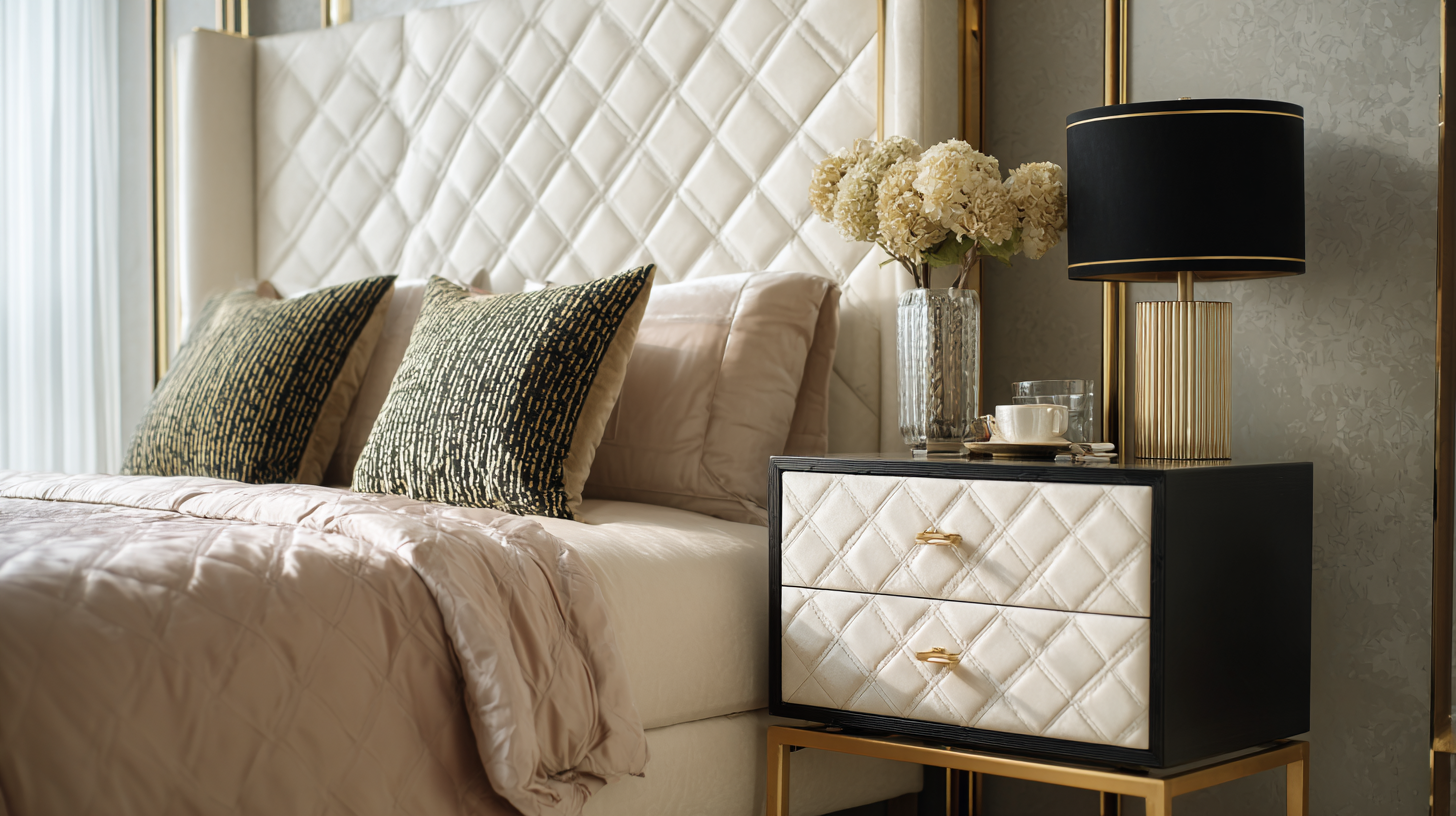As we advance into 2025, the intersection of technology and home design continues to evolve, with smart furniture like the Smart Nightstand leading the charge. According to a report by Statista, the global smart furniture market is projected to reach $39.4 billion by 2027, growing at a compound annual growth rate (CAGR) of 26.6%. This surge is largely driven by the increasing consumer demand for multifunctional, tech-savvy home solutions that enhance convenience and lifestyle. Smart Nightstands, equipped with features such as wireless charging, built-in speakers, and app connectivity, are rapidly becoming essential components of modern bedrooms. As more individuals seek to integrate technology into their living spaces, understanding how to select the best Smart Nightstand tailored to your needs is crucial for creating a seamless and efficient environment.

 The rise of smart nightstands reflects a larger trend in smart home technology, with the global smart home market projected to reach $135.3 billion by 2025, according to a report by Statista. As consumers seek to integrate convenience into their daily routines, smart nightstands have emerged as a multifunctional solution that merges style with high-tech features. These innovative furniture pieces typically come equipped with wireless charging pads, Bluetooth speakers, and USB ports, catering to our increasingly connected lifestyles.
The rise of smart nightstands reflects a larger trend in smart home technology, with the global smart home market projected to reach $135.3 billion by 2025, according to a report by Statista. As consumers seek to integrate convenience into their daily routines, smart nightstands have emerged as a multifunctional solution that merges style with high-tech features. These innovative furniture pieces typically come equipped with wireless charging pads, Bluetooth speakers, and USB ports, catering to our increasingly connected lifestyles.
Market insights reveal that a majority of consumers prioritize functionality, with 68% indicating that smart features are a key buying consideration for bedroom furniture. Additionally, research from MarketsandMarkets shows a compound annual growth rate (CAGR) of 26.9% for smart furniture from 2020 to 2025, underscoring the growing consumer appetite for tech-enabled home solutions. This trend not only enhances the aesthetics of a bedroom but also contributes to the overall efficiency and comfort of living spaces, making smart nightstands an essential addition for modern homes.
When selecting a smart nightstand, it's crucial to consider its key features that enhance usability and functionality. According to a report from the Consumer Technology Association, 70% of buyers prioritize charging capabilities in their smart furniture. A high-quality smart nightstand should ideally come equipped with wireless charging pads, USB ports, and even integrated power outlets, allowing users to conveniently charge multiple devices overnight.
Another essential feature is built-in smart home integration. A study by Statista revealed that 55% of households own at least one smart home device, highlighting the growing trend toward interconnected living spaces. Look for nightstands that offer compatibility with popular smart home systems such as Amazon Alexa or Google Assistant. This enables voice control over various functions, from adjusting bedside lighting to playing music—all accessible right from your smart nightstand.
Lastly, consider the aesthetic and design aspects that suit your space. A survey by Houzz shows that 75% of homeowners believe that furniture should be both functional and stylish. Therefore, opt for a smart nightstand that blends seamlessly with your existing decor while providing the technological benefits you desire.
| Feature | Description | Importance |
|---|---|---|
| Wireless Charging | Allows for convenient phone charging overnight without cords. | High |
| Smart Home Integration | Compatible with smart home devices for voice control and automation. | High |
| LED Lighting | Incorporated ambient lighting to create a cozy atmosphere. | Medium |
| USB Ports | Multiple USB ports for charging various devices simultaneously. | High |
| Alarm Clock Functionality | Built-in alarm clock with customizable settings. | Medium |
| Storage Space | Drawers or compartments for storing personal items. | High |
| Material Quality | Durable materials that match or enhance bedroom decor. | High |
When it comes to enhancing bedroom functionality, the choice between smart nightstands and traditional nightstands plays a crucial role. Traditional nightstands serve their primary purpose with classic simplicity, offering a surface for lamps, books, and personal items, while providing a drawer or shelf for storage. Their charm lies in their variety of designs, materials, and finishes, allowing homeowners to select a piece that seamlessly complements their decor. However, the conventional setup lacks the added conveniences that modern technology can provide.
Smart nightstands, on the other hand, redefine the way we interact with our personal space. Equipped with features like wireless charging pads, Bluetooth speakers, integrated lights, and even app connectivity, they cater to the demands of a tech-savvy lifestyle. These innovations not only save space by eliminating clutter of multiple devices but also enhance the overall nighttime experience, offering functionality previously unseen in traditional models. The decision ultimately hinges on personal preferences and lifestyle – whether one values style and simplicity or the convenience that smart technology brings to the most intimate area of the home.
Smart technology has transformed countless aspects of our daily lives, and sleep is no exception. With the rise of smart nightstands, understanding the impact of these devices on sleep quality has become increasingly important. Smart nightstands often come equipped with features such as integrated sleep tracking, adjustable lighting, and wireless charging capabilities, all designed to enhance the sleeping environment. By monitoring sleep patterns and providing insights, these devices can help users identify factors that disrupt restful sleep, allowing for more informed adjustments to their nighttime routines.
Moreover, the incorporation of ambient light settings in smart nightstands can significantly influence melatonin production and overall sleep quality. Warmer, dimmer lights signal to the brain that it's time to wind down, promoting a calming atmosphere conducive to relaxation. Additionally, some smart nightstands utilize sound machines and gentle alarms that gradually wake users in a more natural way, minimizing sleep inertia and enhancing the morning experience.
As technology continues to evolve, these smart devices not only revolutionize our bedrooms but also play a crucial role in shaping healthier sleep habits.
When it comes to purchasing a smart nightstand, consumer preferences can be heavily influenced by several factors, including technology integration, aesthetics, and price. According to a recent report from Statista, over 70% of consumers prioritize functionality, looking for features such as built-in wireless charging, smart speakers, and app connectivity. These technological aspects not only enhance convenience but also align with the growing trend of smart home integration, making a smart nightstand an essential component for tech-savvy individuals.

Aesthetics also play a crucial role in consumer decision-making, with a survey conducted by the International Furniture Design Association revealing that 65% of buyers consider the design and look of the product as a critical factor. As consumers increasingly seek pieces that fit their personal style and complement their bedroom décor, manufacturers are responding by offering a wider range of designs, from minimalist to contemporary. Price remains another important consideration; a study by the Consumer Electronics Association found that affordability can significantly impact purchasing decisions, with nearly half of the respondents indicating they are discouraged by premium pricing in the smart furniture category. Thus, balancing functionality, design, and cost is key for consumers when choosing the best smart nightstand for their space.
